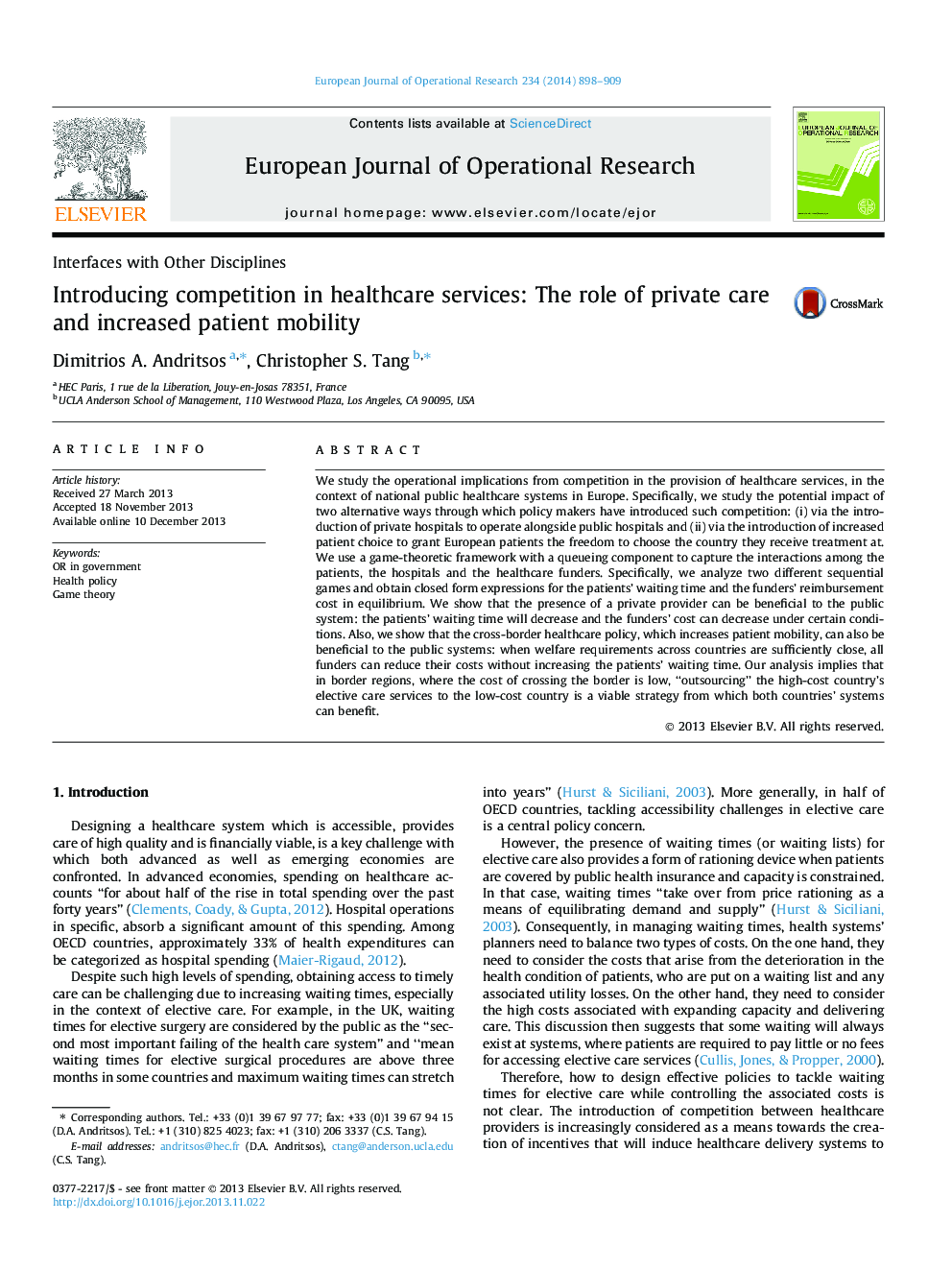| Article ID | Journal | Published Year | Pages | File Type |
|---|---|---|---|---|
| 478222 | European Journal of Operational Research | 2014 | 12 Pages |
•Impact of private system on public system in health care.•Impact of cross-border health care system on public system.•Use of cross-border system to improve social welfare.
We study the operational implications from competition in the provision of healthcare services, in the context of national public healthcare systems in Europe. Specifically, we study the potential impact of two alternative ways through which policy makers have introduced such competition: (i) via the introduction of private hospitals to operate alongside public hospitals and (ii) via the introduction of increased patient choice to grant European patients the freedom to choose the country they receive treatment at. We use a game-theoretic framework with a queueing component to capture the interactions among the patients, the hospitals and the healthcare funders. Specifically, we analyze two different sequential games and obtain closed form expressions for the patients’ waiting time and the funders’ reimbursement cost in equilibrium. We show that the presence of a private provider can be beneficial to the public system: the patients’ waiting time will decrease and the funders’ cost can decrease under certain conditions. Also, we show that the cross-border healthcare policy, which increases patient mobility, can also be beneficial to the public systems: when welfare requirements across countries are sufficiently close, all funders can reduce their costs without increasing the patients’ waiting time. Our analysis implies that in border regions, where the cost of crossing the border is low, “outsourcing” the high-cost country’s elective care services to the low-cost country is a viable strategy from which both countries’ systems can benefit.
